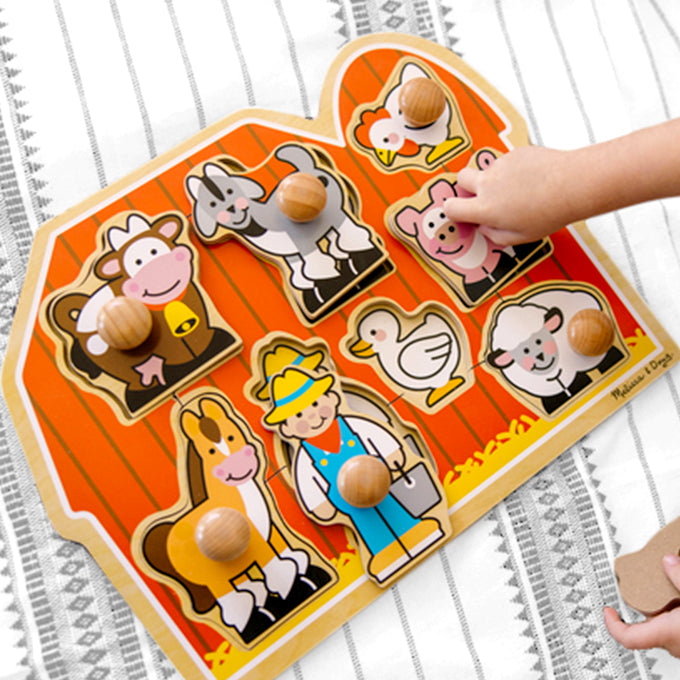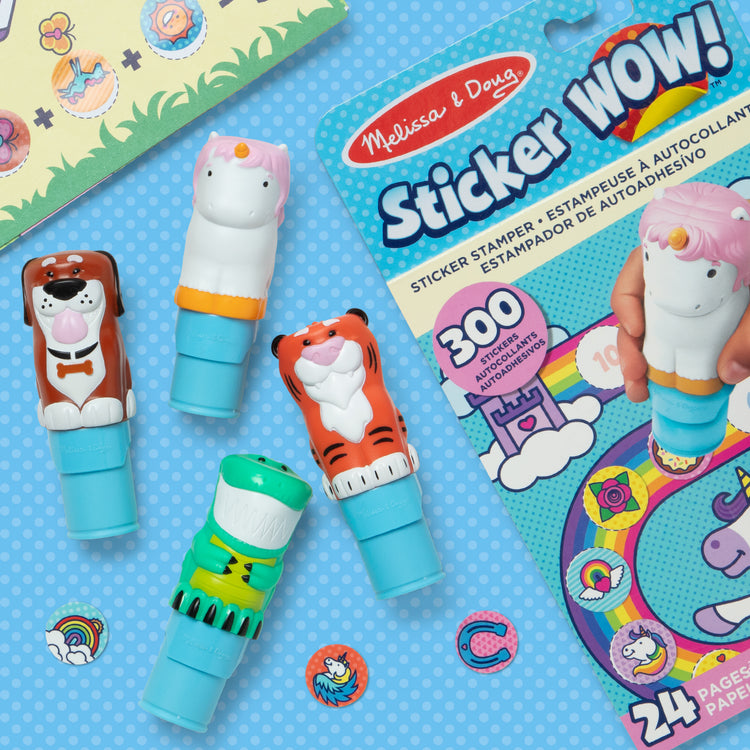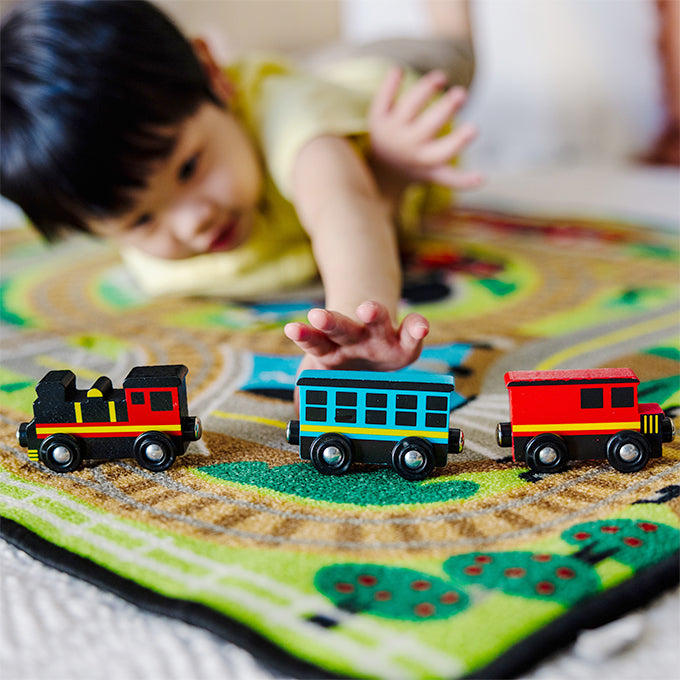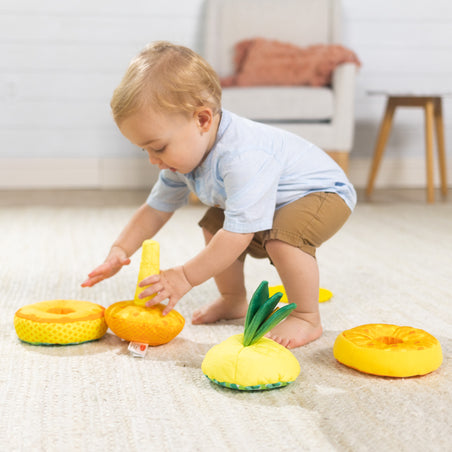Let’s talk about babies and play. Wait, can babies even play? A lot of times they just seem to sit there, or sleep (if you’re lucky), or eat, or cry! What’s going on in those little brains of theirs that will benefit from play – and also give you a few fun bright spots in your day?

Play Pointers
Before we start, a few important ideas:
Give Your Phone a Rest: Play is about your inner experience and the connections you feel with your baby. It’s not about showing off, comparing, or posting on social media as “proof” of how great you’re doing. So go ahead and letyour phone take a little nap!
Do What Feels Good: As we always say at Melissa & Doug, there’s no perfect way to play! So do what makes you laugh, opens your heart, or loosens up your muscle tension.
Timing Is Everything: Sometimes infants are calm and ready to engage, and other times they are not – they might fuss, turn their head away, or close their eyes. Don’t take this as a rejection…infants have to work hard all day to keep their brains alert and organized. When they’ve had enough, they show you— so take it as a “cue” and give them a little break to a calmer experience.
Make It Easy: You don’t have to overdo it. Sometimes get in there and tickle and giggle, but sometimes hang back and just watch what they explore on their own. Sometimes you learn a lot by wondering what they are seeing and feeling in that moment.
3 Ways to Play With Babies

Here are some simple ideas to get the back-and-forth interactions that are play for infants:
Go for the Giggles: See what gets a little smile, a new skill (like grabbing a ring or banging a container), or imitation of something you do — like clapping or a noise. Do it again and again, but change it up a little so that you keep the baby’s attention.
Put on a Performance: Sing your favorite song, tell them a story, or show them new things in nature. This can all be play.
Bounce It Back & Forth: Developmental scientists talk about “serve and return” interactions — like you and your baby are playing a tennis match of emotions and action. Sometimes you ace it (like trying something new that gets a belly laugh!), sometimes you might be out of bounds (it’s ok, we learn from failure!) But sometimes you get a really satisfying rally back and forth — like when you sing a few lines of a song, your little one coos back at you, you sing some more, and their face lights up. You can’t always run up to the net and whack the ball as hard as possible every time (if you’re an anxious or competitive parent, you might find yourself doing this, trying to manage the interaction too much — it’s OK. But take a break, back up to the baseline, and wait for your child to return, or even serve something unexpected to you!)
We are all too exhausted to play a full tennis match, but if you can build brief playful back-and-forths with your baby every day, this will support language, thinking skills, and babies understanding themselves and others. You hopefully will also enjoy a boost to your wellbeing with simple interactions like this.










